Rare Voices: Indonesia – Taufiq Alimi
Rare: Generally, how has COVID affected your country relative to the rest of the world?
Taufiq Alimi: Like other countries, we weren’t prepared. Right now (as of April 9) we have more than 2,000 positive cases*. But there is good news: the number of people recovering from this disease is increasing. The other thing that is encouraging for us to see is that the curve is moving to the peak – we’re not passed it, but we’re close, I think.
Rare: How has the pandemic changed daily life in the communities in which we work?
TA: Right now, the virus is mostly in Java. It hasn’t really reached most coastal areas and remote areas. But there are some restrictions being set by the local government to prevent the spread of the virus. The government of Wakatobi has closed the doors to incoming people – flights are canceled and ports are closed; they only allow limited vessels in and out for necessary goods and food for the community. In Wakatobi, there are many areas where people who can no longer sell commodities to external markets, so they have to try to sell these goods to local markets. For example, left grouper and high quality snapper are usually not consumed locally. They’re sold to Bali or international markets, but now they have to be sold to local markets. Hopefully this will help improve nutrition for local people.
Rare: How has COVID made our work with these communities challenging?
TA: We’ve stopped all travel to the provincial areas where we work. Because of that, every meeting has to be converted to a Zoom meeting.
For instance, Arwan met with the head of the district offices of fisheries and marine finance. Usually (for in person meetings), the one who turns up is the district governor. But in the virtual meeting, many other members and partners also turned up, so in a way, it was a blessing in disguise – making our partners proud of what we’re doing, and maybe adopting a new norm that we can have our meetings done virtually, which would be more cost-effective and productive.
Hari is doing the same thing with community leaders. With communities, the challenge is harder. With district-level officials, they reside in the district capital, they have the luxury of good internet. But community leaders live in remote areas and often have to face spotty cell phone coverage. You might be able to WhatsApp about a once a week, for example. So when we introduce Zoom meetings in these areas, they just drop off easily. It’s a big challenge. So we’re thinking of how to conduct meetings from afar.
Rare: What are the main COVID-related challenges in these communities?
TA: The active cases in Southeast Sulawesi are in town, and not really in the communities where we work. Life in remote areas is almost normal. Food is still there, basic supplies and essentials can easily be acquired. Markets are still open. People just have to keep distance between one another. So we’re a bit fortunate, especially in remote areas.
In Jakarta, it’s a slightly different story. Masks are scarce, equipment to protect medical workers is scarce, hand sanitizer is difficult to find. But we don’t work in urban areas.
Rare: It sounds like the biggest shift in the communities where we work has really been with being able to buy and sell fish, depending on which markets those markets are going to. How would you say Rare’s approach to community-led development has helped prepare these communities to help make this shift?
TA: The way we work with communities has always been to be innovative. When we introduce new behavior to communities, it makes them think that possibilities of adopting new behavior has no limit. If they can move from blast fishing to adopting more ecologically friendly fishing methods, that makes them think that maybe they can adopt another behavior. If we convert aggregators and fish buyers from using paper to using our app (to record catch and transactions), then adopting another new behavior is not impossible. This is the beginning of resilience. I cannot claim that Rare is fully contributing to this, but I think to some extent that our new method of introducing new behavior is helping them to start thinking more openly.
Rare: What is giving you hope right now?
TA: For me, personally, I’m very optimistic and always seeing things from the positive side. I always have hope. Organization-wise, I see that Rare lives with the value of embracing risk and finding solutions. And these two values are very strongly planted in the mind, heart, and daily living of our staff.
Going wider, for Indonesia, I see the caution being taken by the government to take the measures seriously, and with support from the communities, will help Indonesia survive this situation. We had turmoil early in our independence, we had another social catastrophe in 1965 when there was a coup d’etat, and we also suffered an economic crisis in 1998, followed by political reform that took hundreds of lives and an economy that went down to negative growth. We had this. And we are a very resilient country and I believe that this shall pass and Indonesia will come out stronger.
*Since the date of the interview (April 9) Indonesia has reported a total of more than 7,000 cases.


